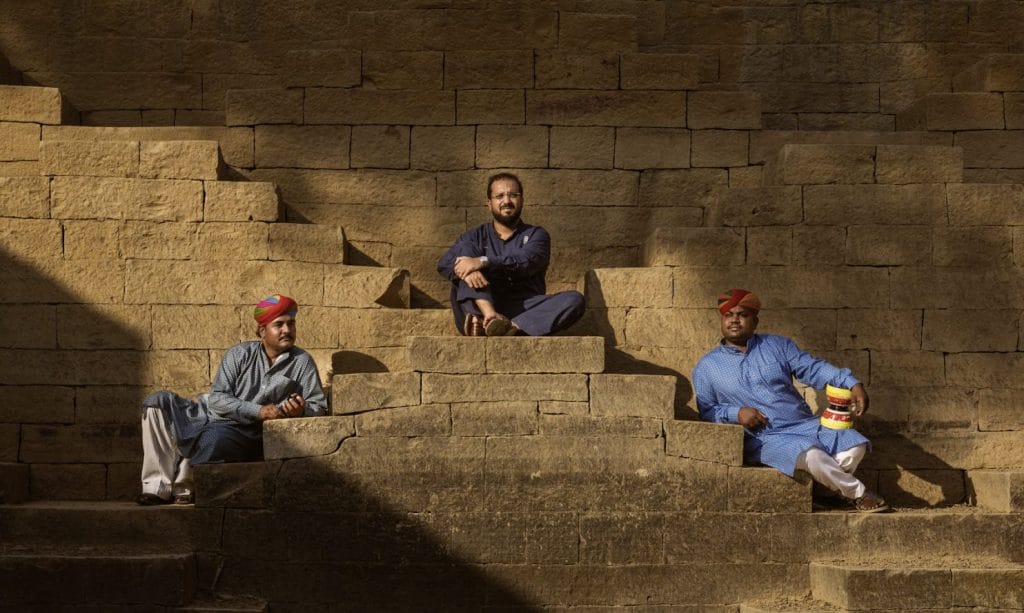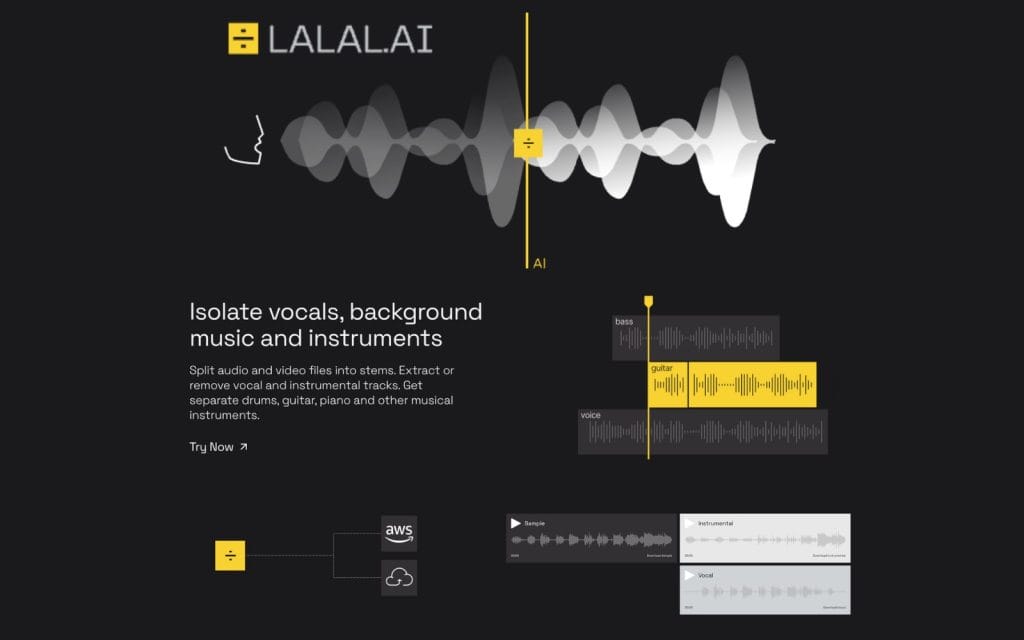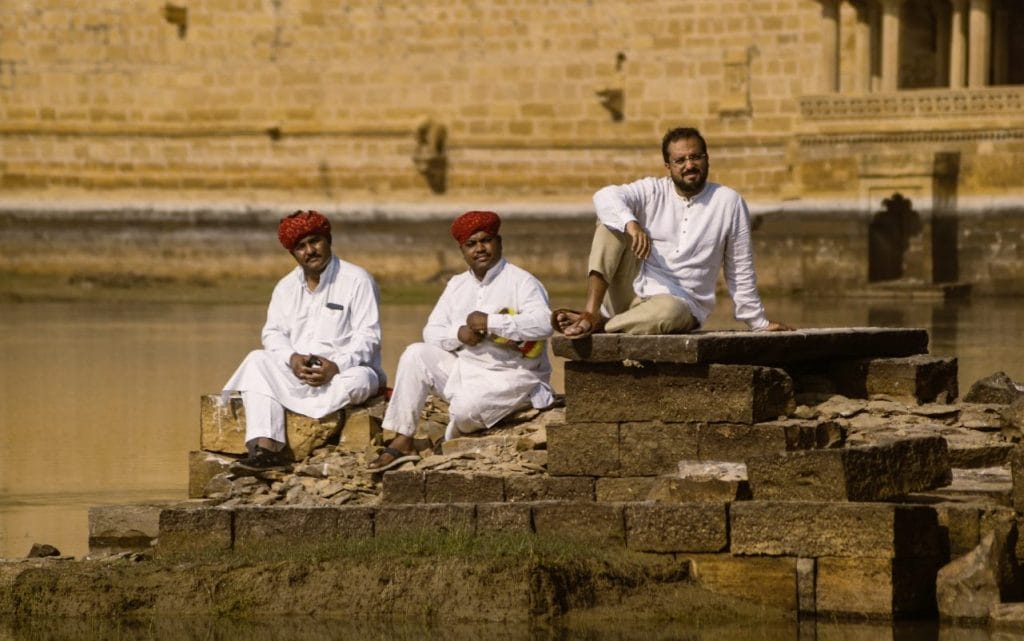Image Creds: Sachin Soni
We’re excited to premiere “Algoza” — the third track from Origins, the upcoming collaboration between Hamza Rahimtula and Rajasthan Folkstars — a day ahead of its official release on Sol Selectas.
Built around the twin flute of the same name, “Algoza” threads raw melodic phrasing with a crisp electronic structure, capturing what Hamza describes as “a balance between the cerebral and the physical.” You’ll hear minimal percussion from Indian, African, and Latin traditions stitched into a hypnotic backbone, plus a short vocal sample from Nelson Mandela that cuts through with a clear message: listen more deeply.
The track is part of Origins, a full-length record built on live sessions with traditional Manganiyar musicians and restructured through Hamza’s hands-on studio process.
In the interview below, he breaks down how he avoids overthinking, separates creation from editing, and how this record nearly didn’t happen.
Dive in, spin the premiere on our SoundCloud, and keep an ear out when the full LP lands tomorrow on Beatport
When do you notice yourself overthinking in the studio?
I tend to overthink when I try to make a track constantly engaging — filling it with elements so it never feels boring or monotonous. But in doing that, I sometimes lose the dancefloor energy and drift away from the core of the track.
When I sense that, I strip it back and revisit the percussion and musical choices to bring back the physicality.
For me, the balance between the cerebral and the physical has to be just right — and overthinking is a natural part of reaching that balance. The trick is knowing when to stop. Taking breaks and coming back with fresh ears has saved me more times than I can count.
What’s your first clue that you’ve gone too deep into analysis?
It usually happens when I’m editing live recordings. I get overwhelmed early on — I hear the raw takes and start judging them before I’ve even cleaned them up.
That’s when I know I’ve slipped into analysis mode, not creation mode. At that point, I stop thinking and go into surgeon mode — focus on the edit, not the judgment. You can only really decide whether something works once it’s been properly shaped.
Have you ever talked yourself out of something great?
Yes — I almost talked myself out of this album. When I started the first track, I was trying to fit the vocals into the groove, and it felt completely out of my comfort zone. I actually left the studio that day thinking I’d scrap the whole thing.
But after a break, I gave it another shot — and something started to click. That one decision led to the entire album coming together.
What helps you make faster decisions?
I only work during the day — never at night. My ears are freshest in the morning and early afternoon. After 4–5 hours, I start getting ear fatigue and I know I’m not at my best.
I also take breaks every hour, meditate between sessions, and eat good food in the studio to stay balanced. Swimming and movement help too — circulation plays a huge role in mental clarity.
It might sound corny, but music creation is deeply internal work. It requires a completely different rhythm than DJing.
How do you get back to instinct when you’re stuck in your head?
Patience, persistence, and belief. When I get stuck, I keep working until something clicks — or I walk away and come back with a different mindset.
But I never give up on the idea itself. You need a mix of calm confidence and aggression — the belief that the solution will come.
Do you have a system for separating idea generation from editing?

Yes. While recording Origins, we selected 10 traditional folk songs and figured out their keys. Then we recorded the musicians over some existing grooves — mine and from other producers — just to give them something to play to. Later, I replaced those backdrops with my own productions, slowly building the arrangements around what we captured.
The key is to lay down ideas quickly — otherwise, both the musicians and the producer can lose momentum. In the studio, I jammed on synths and drum machines over my own loops — it was about capturing energy in the moment.
Editing is a whole other process. It takes patience and clarity. A good edit can completely transform a take — you can rework a performance into something that sounds nothing like the original. It’s a different art form from tracking.
What’s one thing that instantly breaks the overthinking loop?
I never work on one track at a time. I usually build 5–10 grooves in parallel and add little bits to each.
That way, I never get stuck obsessing over a single idea. If I’m losing steam on one, I jump to another — and when I return later, I hear it with fresh ears. It keeps things flowing and prevents overthinking.
The post PREMIERE: Hamza Rahimtula, Rajasthan Folkstars – Algoza [Sol Selectas] appeared first on Magnetic Magazine.






